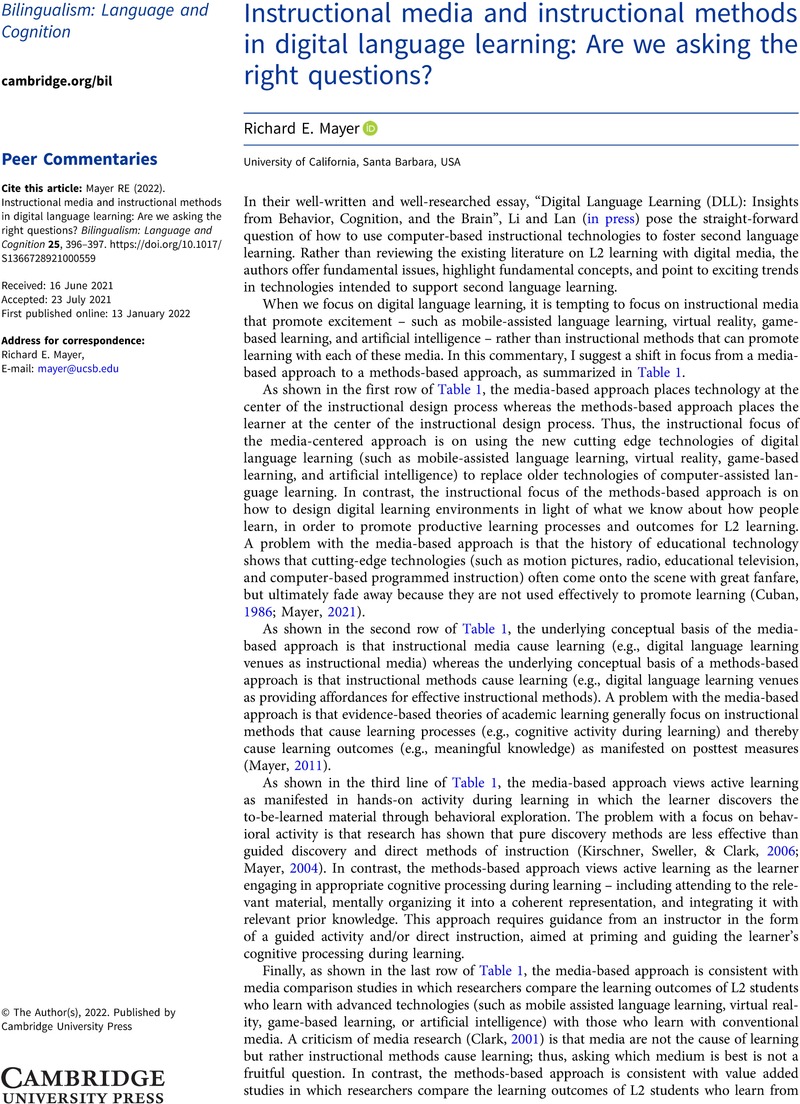Crossref Citations
This article has been cited by the following publications. This list is generated based on data provided by Crossref.
Abutalebi, Jubin
and
Clahsen, Harald
2022.
Digital tools for learning new languages: Benefits and limitations.
Bilingualism: Language and Cognition,
Vol. 25,
Issue. 3,
p.
359.
Zhang, Zhicong
Li, Heming
and
Zhou, Jiaxian
2023.
Teaching with social context in instructional video facilitates second language vocabulary learning.
Heliyon,
Vol. 9,
Issue. 3,
p.
e14540.
Kwon, Suh Keong
and
Yu, Guoxing
2024.
The effect of viewing visual cues in a listening comprehension test on second language learners’ test-taking process and performance: An eye-tracking study.
Language Testing,
Vol. 41,
Issue. 3,
p.
649.
Zhai, Xiuwen
Zhao, Ruijie
Jiang, Yueying
and
Wu, Hanwei
2024.
Unpacking the Dynamics of AI-Based Language Learning: Flow, Grit, and Resilience in Chinese EFL Contexts.
Behavioral Sciences,
Vol. 14,
Issue. 9,
p.
838.
Bidarra, José
and
Neves, Cláudia
2024.
Creating Learning Organizations Through Digital Transformation.
p.
49.
Perry, Michelle
Azevedo, Renato F. L.
Henricks, Genevieve
Crues, R. Wesley
and
Bhat, Suma
2024.
Learning From Online Instructional Videos Considering Video Presentation Modes, Technological Comfort, and Students Characteristics.
International Journal of Human–Computer Interaction,
p.
1.
Malik, Awais
and
Fürstenau, Bärbel
2024.
Representational visuals of abstract financial concepts: A means to foster financial literacy.
Citizenship, Social and Economics Education,
Vol. 23,
Issue. 3,
p.
144.
Smith-Nunes, Genevieve
2025.
AgileDBR: Blending Industry and Academic Practice.
IEEE Technology and Society Magazine,
Vol. 44,
Issue. 3,
p.
80.


